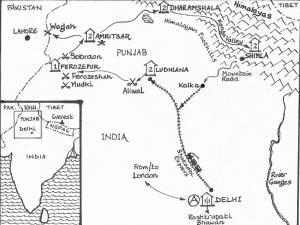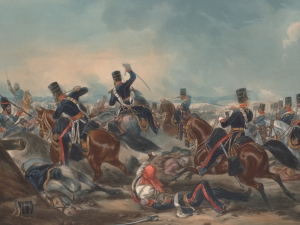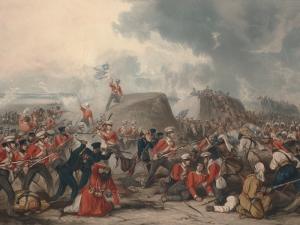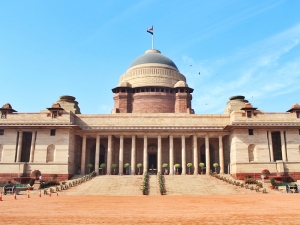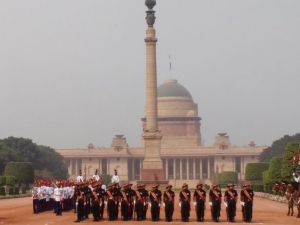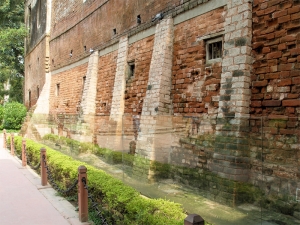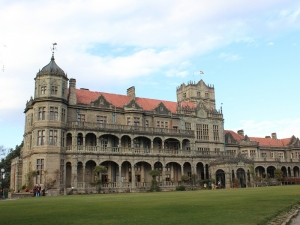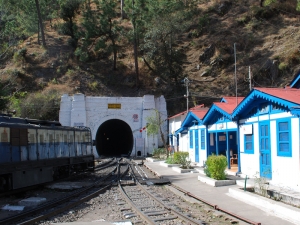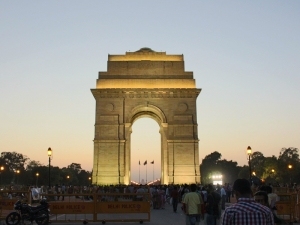
The First Sikh War 1845-46 & Indian Hill Stations
The Cast of a Die
To be confirmed
The First Sikh War 1845-46 & Indian Hill Stations
The Cast of a Die
Tour Introduction
This 13 day tour travels to the heart of Indian Punjab and to the foothills of the Himalaya. During our journey we will witness the wonderful changing of the guard ceremony in Delhi, travel through rural India to explore the key battlefields from the First Sikh War, visit the beautiful Golden Temple and tragic Jallianwala Bagh in Amritsar, enjoy the competitive Wagah border parade, drive through the verdant valleys of Himachel-Pradesh to reach the home of the Dalai Lama and the picturesque colonial hill station of Shimla. Our hotels have been selected on the basis of their quality, character and location: in Delhi and Shimla they are 5 star, at Ludhiana and McLeod Ganj they are 4 star, at Amritsar it’s a highly rated boutique heritage 3 star whilst our one night stay at Ferozepur is more modest, albeit in the best in the area. Though the distance that we cover is not particularly great, the state of some of India’s roads means that some journeys may take some time.
Background
In 1842 the disastrous and humiliating campaign in which the British “were thrashed out of Afghanistan” ended, but it had severely damaged their reputation for invincibility in India and beyond. Smarting from indignation, a hawkish Lord Ellenborough despatched a small professional army under the command of a pugnacious, God-fearing Sir Charles Napier into the Sind to quell a perceived resurrection against British hegemony. Victory at Miani and the subsequent sequestration of the province caused outrage both in India and in Britain resulting in the recall of the Governor-General. His replacement was the peace-minded, forward-thinking Sir Henry Hardinge, whose aspirations to develop India’s infrastructure were thwarted by the growing unrest in the Punjab. For years this province had been robustly ruled by ‘The Lion of Lahore’, the pro-British Ranjit Singh, who had created one of the most formidable fighting forces in the sub-continent: the Khalsa. But his passing in 1839 had led to a power-vacuum in the Khalsa’s leadership, it being increasingly directed against British interests and when it crossed the River Sutlej in December 1845, Hardinge felt obliged to declare war against the Punjab. In the words of historian Lawrence James, “the British were about to fight the first and only ‘modern’ war in India against an army of 60,000 who matched them in discipline, training and weaponry”.
From the middle of the 19th century the region of Himachal Pradesh saw the development of hill station retreats amidst the cool verdant foothills of the Himalaya, none more important than that of Shimla where, until the outbreak of WW2, the colonial government of India would retire for the summer. The result was a British home from home and many of the crumbling buildings from this period still exert their charm and enjoy commanding views over the towering mountains beyond. In 1959 the little hillside town of McLeod Ganj saw the arrival of another foreign administration: that of the Tibetan government in exile led by its spiritual leader, the Dali Lama.
Highlights
- The splendid 'Changing of the Guard' ceremony in Delhi
- Explore the Tsuglagkhang temple complex
- Visit Coronation Park
- Presidential palace at Rashtrapati Bhawan
- Spend a morning at the impressive Ranjit Singh War Museum
- Walk the battlefield at Aliwal
- Explore the restored and working temple complex of Hari Mandir
- Visit to the Tibet Museum
- Excursion on the UNESCO listed Shimla mountain railway
- Afternoon tea at Wildflower Hall
- Trace the Sikh defensive lines
- Sample some typical Tibetan cuisine
What's Included
- Return flights from London (optional)
- Internal train journeys
- 3,4 & 5 Star Hotels
- Buffet breakfast each morning
- Dinner parties hosted by your expert historians and tour manager
- Two drinks i,e wine or beer at each dinner and a welcome drink on first evening
- Dedicated Tour Manager
- Entrance fees for sites included in itinerary
- Modern, comfortable, air-conditioned coach
- Tour information booklet
- Access to the Cultural Experience app
- Helpful and friendly travel advice
- The company of like-minded travelers
Itinerary
Day 1 - Fly London to Delhi
Day 2 - Delhi
Arrive early morning and check in to our hotel for 2 nights. After lunch we take a brief orientation tour around New Delhi, designed by Sir Edward Lutyens and visit Coronation Park, where many of the British colonial era statues have been ‘retired’.
Day 3 - Changing of the Guard
We visit the presidential palace at Rashtrapati Bhawan to enjoy the pomp and ceremony of the splendid ‘Changing of the Guard’ performed by mounted and marching troops, in their parade uniforms, accompanied by brass bands. Board the late afternoon Shatadbi Express to Ludhiana where we check-in to our hotel for two nights.
Day 4 - Ludhiana and Aliwal
We spend the morning at the impressive Ranjit Singh War Museum with its fabulous collection of military equipment (ancient and modern), uniforms and dioramas, including one of Aliwal. At Aliwal itself we walk the battlefield where Sir Harry Smith inflicted a heavy defeat on the Sikh army on 28 January 1846.
Day 5 - Mudki and Ferozeshah
We see where, on 18 December 1845, the incursive Sikh Khalsa failed to surprise a gathering British force, whose leader, General Gough, then ordered a bloody assault to drive his enemy back to Ferozeshah. This afternoon we visit the latter village where, 3 days after Mudki, Sir Harry Smith led British battalions against the Sikh breastworks in further bloody assaults. Its memorial contains a number of paintings and weapons from the battle. Continue to Ferozepur. Check-in to our hotel for one night.
Day 6 - Sobraon
We trace the Sikh defensive lines successively attacked over the 10/11 February 1846 by General Gough, inflicting heavy casualties on the Khalsa, driving them in to the Sutlej and ultimately winning the war. Thence to Amritsar where we check-in to our hotel for two nights.
Day 7 - Amritsar
We explore a dark period of Punjabi history as we discuss the British Amritsar massacre of 1919 when almost 400 civilians were killed at Jallianwala Bagh, poignantly commemorated in the public gardens. Some 65 years later the Indian Army would inflict a greater number of casualties on rebelling Sikhs during its siege of the ‘Golden Temple’. We reflect on both tragedies as we explore the completely restored and working temple complex of Hari Mandir. Our day ends at the Pakistani border crossing at Wagah to witness the immaculately turned out synchronised border guards, from both countries, lower their flags and close the gates in an entertaining show of military bravado.
Day 8 - To Dharamshala
We spend most of the day taking a scenic drive of some 200 km over challenging roads, gradually ascending the Himalayan foothills to gain our first glimpses of those majestic mountains as we approach Dharamshala where we check-in to our hotel for two nights.
Day 9 - McLeod Ganj and the Dali Lama
Amidst colourfully robed Tibetan monks we will explore the Tsuglagkhang temple complex, the spiritual home of Tibet and, if we are lucky, perhaps catch a glimpse of His Holiness the Dalai Lama. We’ll visit the Tibet Museum to better understand the struggle of its people. This evening we will sample some typical Tibetan cuisine.
Day 10 - The Kangra Valley
We drive the 240 km journey to Shimla through the Kangra Valley. Make no mistake, this will be a long and tiring journey along winding roads and one in which we will see how rural India competes with pockets of industrialisation. Upon arrival in Shimla we check-in to our hotel for two nights.
Day 11 - Shimla
We spend an entire day in this archetypal crumbling colonial hill station with its stunning views over the Himalayas. We will wander along the Mall to Scandal Point, and the Ridge and Christchurch. A highlight of the day will be an excursion on the UNESCO listed Shimla mountain railway before we take afternoon tea at Wildflower Hall, one time home to Lord Kitchener.
Day 12 - Shimla to Delhi
A lunchtime departure takes us down the pretty twisting mountain roads to Kalka from where we catch the Shatadbi Express back to Delhi and transfer to our airport hotel for the night.
Day 13 - Fly Delhi to London
Recommended Reading List
- At Them with the Bayonet - The First Anglo-Sikh War 1845-1846
- Bright Eyes of Danger: An Account of the Anglo-Sikh Wars 1845-1849
- History of the Sixteenth, The Queen's Light Dragoons (Lancers) 1912 to 1925
- The First Anglo-Sikh War
- The Sikhs and the Sikh Wars: The Rise, Conquest, and Annexation of the Punjab State

